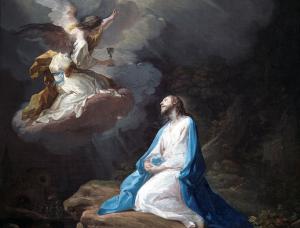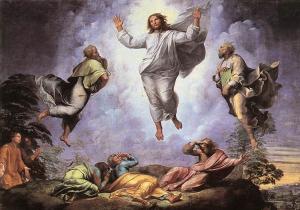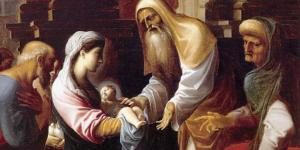
Many questions occur as I pray the Sorrowful Mysteries of the Rosary: Why did Jesus have to die as he did? Why did he walk the path toward his death? Why was he poor instead of rich? If he had lived longer, he might have been able to convince more people to follow God’s way. If he had been richer, he might have had more influence with people who mattered in society. He could have made some great changes. Money might have protected him from the cross. As it is, it’s hard not to rate Jesus’ career as a failure.
On the cross Jesus felt like a failure, but the revelation that God approved this “failure” changed what needed to be changed. Ever since Jesus resurrection it has been impossible to see success and failure in quite the same way as before.
Words for the Five Sorrowful Mysteries
- The Agony in the Garden. Jesus prayed, “Father, if you are willing, take this cup away from me; still, not my will but yours be done.” (Luke 22:42)
- The Scourging at the Pillar. The prophet Isaiah said, “It was our infirmities that he bore, our suffering that he endured. … But he was pierced for our offenses, crushed for our sins. Upon him was the chastisement that makes us whole. With his stripes we were healed. … Through his suffering my servant shall justify many, and their guilt he shall bear. therefore I will give him his portion among the great.” (Isaiah 53:4-12)
- The Crowning with Thorns. The soldiers mocked Jesus saying, “Hail, King of the Jews!” (Matthew 27:29) Jesus answered Pilate, “My kingdom does not belong to this world.” (John 9:36)
- The Carrying of the Cross. Jesus said, “Come to me all you who labor and are burdened, and I will give you rest. Take my yoke upon you and learn from me, for I am meek and humble of heart, and you will find rest for yourselves, for my yoke is easy and my burden light.” (Matthew 11:28-30)
- The Crucifixion. Jesus cried out, “My God, my God, why have you forsaken me.” … (Mark 15:34) … Jesus said, “Father, forgive them for they know not what they do.” (Luke 23:34) … Jesus cried out in a loud voice, “Father, into your hands I commend my spirit.” (Luke 23:46)
More thoughts about the Sorrowful Mysteries:
The First Sorrowful Mystery, the Agony in the Garden.
This mystery could be called “The Temptation in the Garden.” The devil has been haunting Jesus’ ministry from its beginning after the baptism until now. Just lately this haunting has taken the form of the apostles’ inability to understand or believe Jesus when he mentions the cross, the cost of discipleship.
That must have been hard on Jesus. Now in the garden Jesus’ all-too-human spirit wrestles with the devils of his own doubts as well as fears. Two thousand years later we struggle to understand what Jesus’ Father’s will must have been in these last hours.
In Luke’s account angels come and minister to Jesus in the garden. In Matthew the angels do their ministering after the first temptation in the desert.
The Second Sorrowful Mystery, the Scourging at the Pillar.
I have to face the second of the sorrowful mysteries honestly. It’s hard for me to understand. I know what I don’t like about it. You see it in Mel Gibson’s The Passion of the Christ. In that film the historically inaccurate scourging scene shows Jesus receiving many more blows than Roman law allowed. Finally Jesus slumps to the ground. The centurion in charge indicates that the beating is over. But, amazingly, Jesus rises again, and the beating continues.
The picture is one of Jesus willing his own suffering to be as great as possible. For this mystery I chose Scripture that I could not avoid, though I would have liked to: “By his stripes we are healed.” Are we really healed by suffering? Does greater suffering translate to greater healing? I don’t believe it, and so this mystery is a real mystery to me.
The Third Sorrowful Mystery, the Crowning with Thorns.
If it wasn’t obvious before, it is now that Jesus’ crucifixion was a political response to a political crime. Kings and presidents have felt secure in their station, remembering Jesus’ words, “My kingdom is not of this world.’ The Church has imagined being “in” the world and not “of” the world. Pilate knew better. He knew the danger that Jesus posed to the worldly system of Roman domination and his own place in it.
Jesus’ kingdom was not of the world in the sense that its authority comes from humans or empires. It’s the Kingdom of God, but it is definitely in the world and for the world and a threat to the world’s established procedures.
The Fourth Sorrowful Mystery, the Carrying of the Cross.
Jesus welcomes us to come to him and share his cross, for “my yoke is easy and my burden light.” I think he means in comparison to the things we carry without noticing they are burdens.
The Fifth Sorrowful Mystery, the Crucifixion.
“My God, my God, why have you abandoned me.” In Jesus all the forsaken ones of the world can find a fellow traveler.
This may be the only time in Jesus’ life that he addressed God without saying “Father.” In Jesus’ sense of abandonment, of distance from God, he identifies completely with us sinners down to the very depths into which we so often sink. In that identification lies our salvation.
Image credit: National Catholic Register via Google Images












